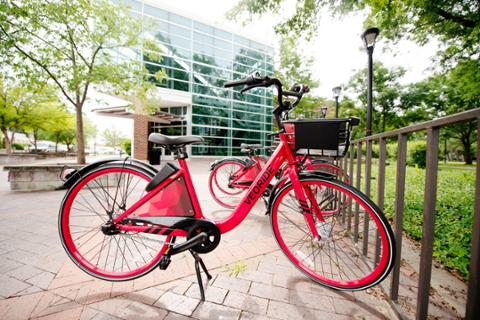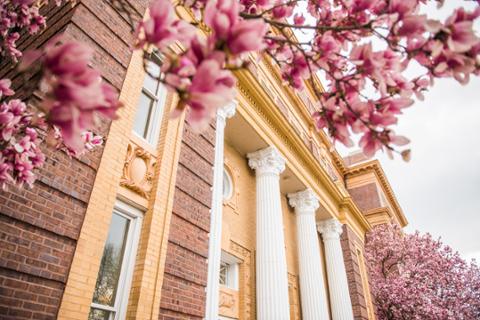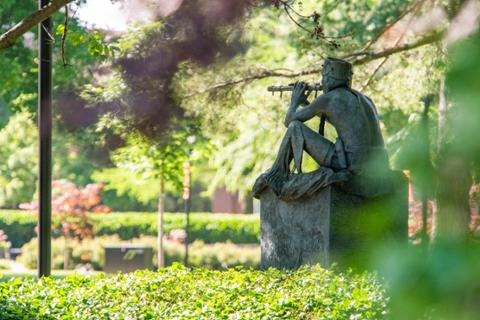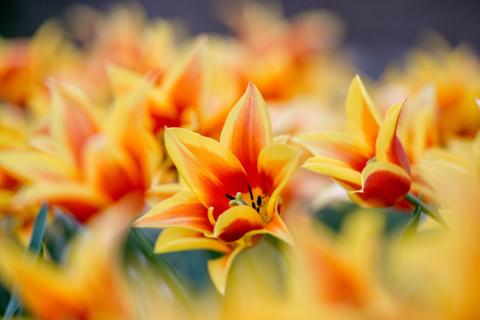Campus Operations
Campus operations serves the needs of faculty, staff, students, and visitors. Sustainable practices guide recycling efforts, water and energy use, maintaining a safe and beautiful campus, transportation, and building renovations.
- Recycling
- Water and Energy Use
- Landscaping
- Maintaining a Safe Campus
- Transportation
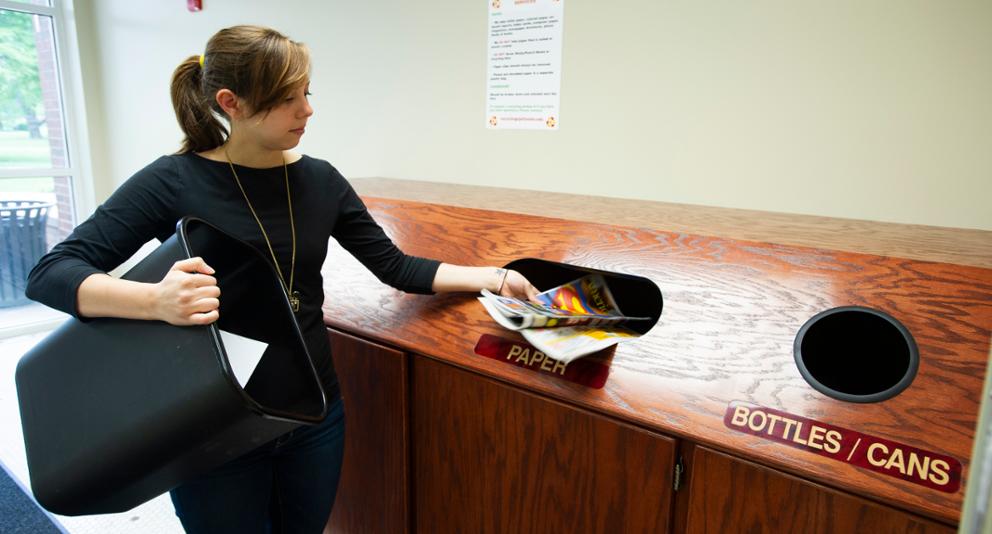
Pittsburg State University has diverted over 500 tons of recyclable material since 2013. Consistent and efficient recycling practices:
1) Reduce harmful greenhouse gas emissions and water pollution created from landfill use
2) Conserve energy and natural resources
3) Reduce the destruction of natural habitats.
Pitt State Recycling strives to divert as much waste as possible through reusing, re-purposing, and recycling. Convenient means for recycling are found across campus: recycling stations in University buildings for paper, bottle/cans, and cardboard recycling; outdoor containers across campus; and compost collected from dining locations. Recyclables are sorting on campus before delivery to the SEK Recycling Center.
Learn more about recycling at Pittsburg State.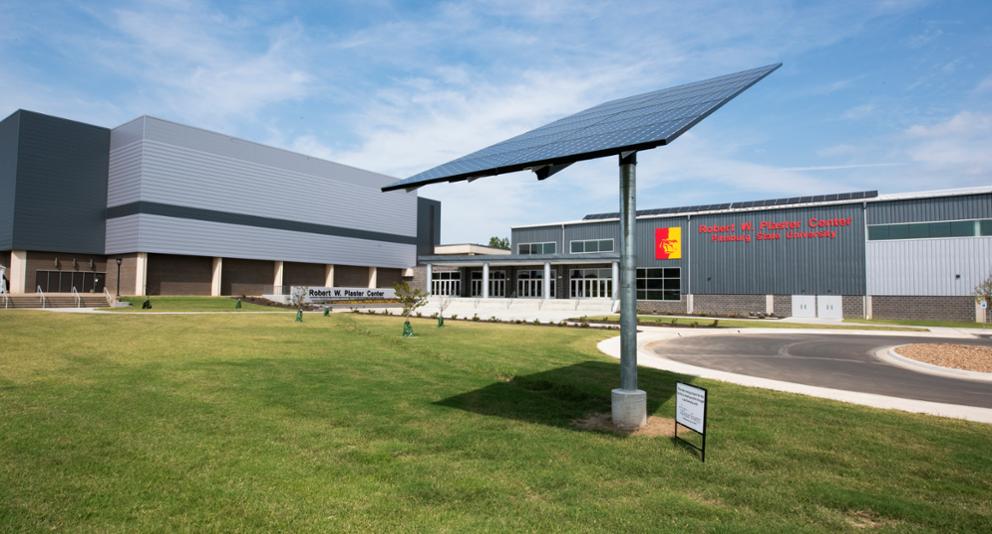
Managing water and energy use by campus operations reduces the resources consumed by Pittsburg State University. 32 water refill stations have diverted over 1 million plastic water bottles from local landfills since their installation in 2013.
Energy use stations in campus buildings show building-by-building energy use. Visitors to the campus can learn about the percentage of energy consumed by each building compared to the rest of campus.
Water and energy conservation is also encouraged in campus housing.
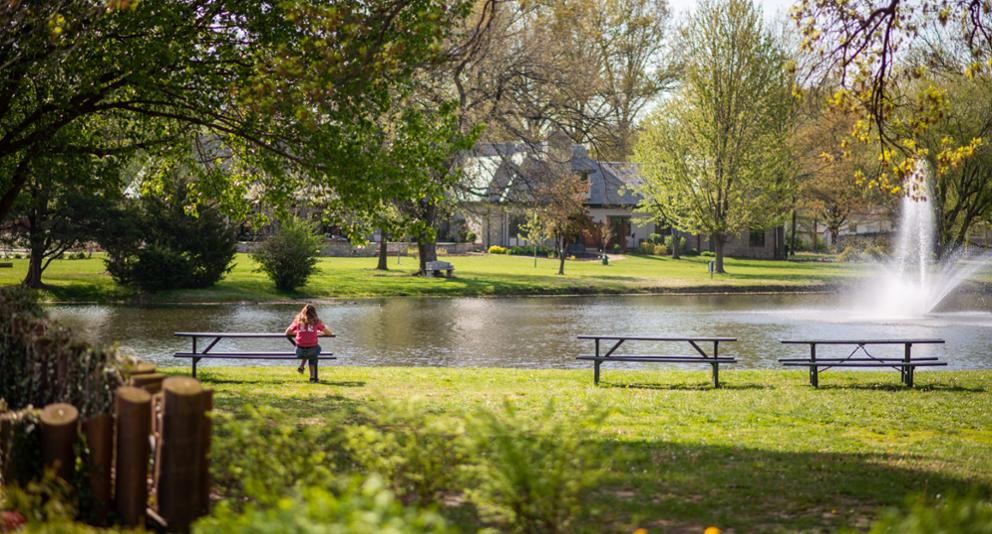
Pittsburg State boasts a campus that is both beautiful and sustainably minded. Inconspicuous details like 48,500 square feet of porous asphalt pavement, well-placed retention ponds, and beautiful rain gardens collect, reduce, and filter storm water from parking lots. These small, but important installations lesson the strain on the city’s storm water management system.
Landscaping at Pittsburg State is intentional and sustainable. Native varieties of plants are often used to beautify the campus. An abundance of trees provide shade to parts of the oval.
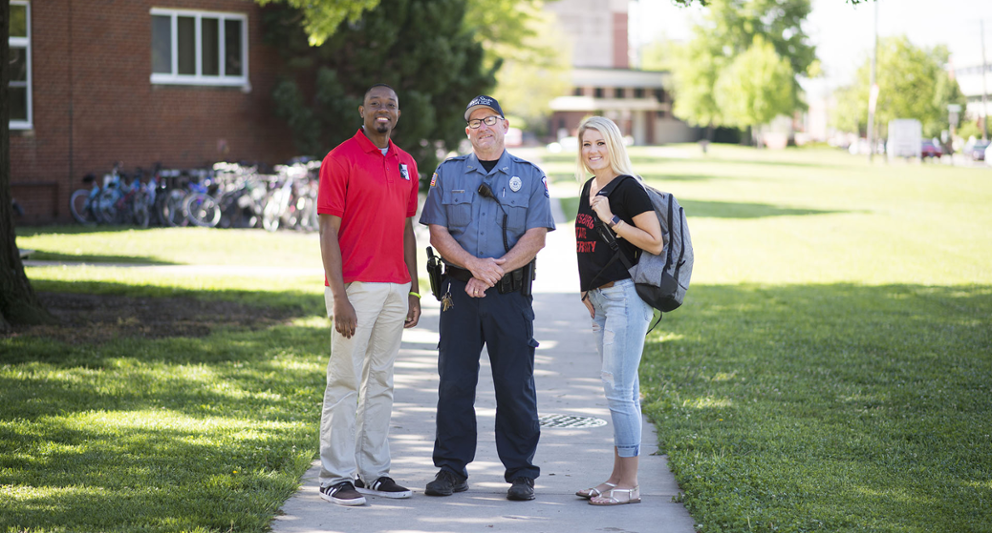
To ensure the safety of students, faculty and staff, and visitors, University Police maintain a positive, safe environment for individuals on campus. Student Prevention and Wellness oversees programs dedicated to the physical and mental health of PSU students.
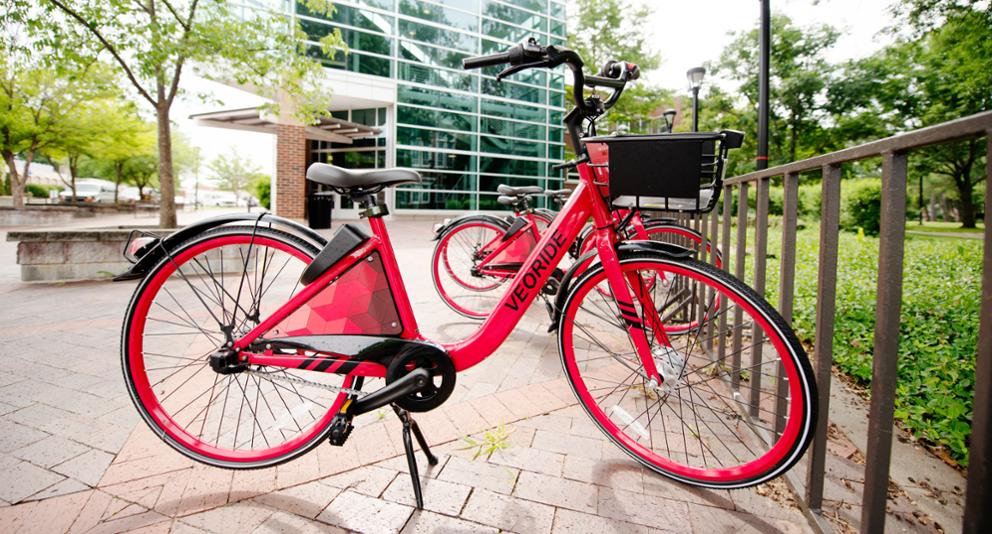
University-provided transportation systems and walking/biking trails allow students to travel across campus without driving. The Gorilla Shuttle provides free transportation during the day to 11 stops on campus, reducing the need to drive around campus. A walking/biking trail connects the Kansas Technology Center, Robert W. Plaster Center, and Garfield Weede Building to the heart of campus.
In 2018, Pittsburg State University welcomed VeoRide's dockless pay-as-you-ride bike share system to campus. Riders can use the VeoRide app to locate a nearby bike via their smart phone and unlock the bike for a quick commute or fun spin around campus. Bikes are available at designated bike parking areas across campus.

Recycling
Pittsburg State University has diverted over 500 tons of recyclable material since 2013. Consistent and efficient recycling practices:
1) Reduce harmful greenhouse gas emissions and water pollution created from landfill use
2) Conserve energy and natural resources
3) Reduce the destruction of natural habitats.
Pitt State Recycling strives to divert as much waste as possible through reusing, re-purposing, and recycling. Convenient means for recycling are found across campus: recycling stations in University buildings for paper, bottle/cans, and cardboard recycling; outdoor containers across campus; and compost collected from dining locations. Recyclables are sorting on campus before delivery to the SEK Recycling Center.
Learn more about recycling at Pittsburg State.Water and Energy Use
Managing water and energy use by campus operations reduces the resources consumed by Pittsburg State University. 32 water refill stations have diverted over 1 million plastic water bottles from local landfills since their installation in 2013.
Energy use stations in campus buildings show building-by-building energy use. Visitors to the campus can learn about the percentage of energy consumed by each building compared to the rest of campus.
Water and energy conservation is also encouraged in campus housing.


Landscaping
Pittsburg State boasts a campus that is both beautiful and sustainably minded. Inconspicuous details like 48,500 square feet of porous asphalt pavement, well-placed retention ponds, and beautiful rain gardens collect, reduce, and filter storm water from parking lots. These small, but important installations lesson the strain on the city’s storm water management system.
Landscaping at Pittsburg State is intentional and sustainable. Native varieties of plants are often used to beautify the campus. An abundance of trees provide shade to parts of the oval.
Maintaining a Safe Campus
To ensure the safety of students, faculty and staff, and visitors, University Police maintain a positive, safe environment for individuals on campus. Student Prevention and Wellness oversees programs dedicated to the physical and mental health of PSU students.


Transportation
University-provided transportation systems and walking/biking trails allow students to travel across campus without driving. The Gorilla Shuttle provides free transportation during the day to 11 stops on campus, reducing the need to drive around campus. A walking/biking trail connects the Kansas Technology Center, Robert W. Plaster Center, and Garfield Weede Building to the heart of campus.
For off campus travel, SEK-CAP offers a deviated fixed route service, Pittsburg Area Community Transit, or P.A.C.T. This route stops at popular retail, educational, and service locations throughout the town.
The City of Pittsburg worked to get Bird electric scooters to be located around campus and the community. These electric scooters can be rented for short trips using a mobile app.
The Kansas Technology Center has an electric vehicle charging station available. Charging stations are planned for installation at Kelce College of Business in the future. A solar canopy along the hike bike trail north of KTC is planned for construction and will provide convenience power for some of the outdoor labs and serve as a teaching tool. Evergy is the lead donor for both installations.
